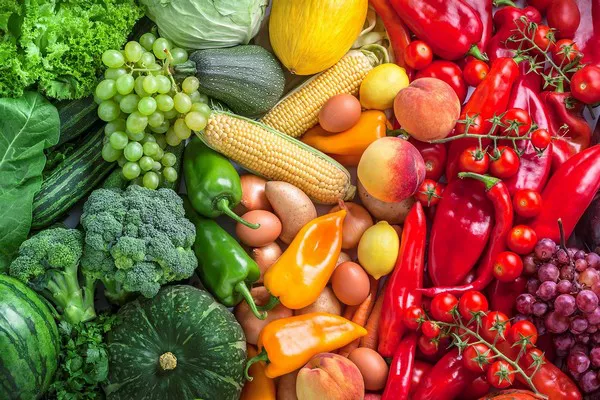Corn is a staple food in many parts of the world and is enjoyed in a variety of forms, from fresh corn on the cob to popcorn and cornmeal. It is a good source of fiber, carbohydrates, and several essential vitamins and minerals. In this article, we will explore the vitamins that are in corn, including the benefits of each nutrient and the best ways to incorporate corn into a healthy diet.
The Benefits of Vitamins in Corn
Corn is a good source of several vitamins that are essential for good health. These vitamins can provide a range of benefits, including:
Supporting eye health: Corn is a rich source of vitamin A, which is important for eye health. Vitamin A can help to prevent night blindness, promote healthy vision, and reduce the risk of age-related macular degeneration.
Boosting immune function: Vitamins found in corn, such as vitamin C and vitamin E, can help to boost immune function and support overall health. They can help to prevent infections and reduce the risk of chronic diseases.
Promoting skin health: The vitamin C found in corn can help to promote healthy skin. It can help to reduce the appearance of fine lines and wrinkles, improve skin texture, and prevent damage from UV radiation.
Supporting heart health: The vitamin B6 found in corn can help to support heart health. It can help to reduce levels of homocysteine, an amino acid that is associated with an increased risk of heart disease.
Vitamins Found in Corn
Corn is a good source of several vitamins that are essential for good health. Some of the most important vitamins found in corn include:
Vitamin A: Vitamin A is important for eye health, immune function, and overall health. It is found in yellow and orange varieties of corn, such as sweet corn and popcorn. Vitamin A can help to prevent night blindness, promote healthy vision, and reduce the risk of age-related macular degeneration.
Vitamin C: Vitamin C is important for immune function, skin health, and overall health. It is found in all varieties of corn. Vitamin C can help to boost immune function, reduce the risk of infections, and promote healthy skin.
Vitamin E: Vitamin E is important for immune function, skin health, and overall health. It is found in all varieties of corn. Vitamin E can help to boost immune function, reduce the risk of chronic diseases, and promote healthy skin.
Vitamin B6: Vitamin B6 is important for nerve function, red blood cell production, and overall health. It is found in all varieties of corn. Vitamin B6 can help to reduce levels of homocysteine, an amino acid that is associated with an increased risk of heart disease.
Best Ways to Incorporate Corn into a Healthy Diet
Corn is a versatile food that can be incorporated into a healthy diet in a variety of ways. Some of the best ways to enjoy corn include:
Fresh corn on the cob: Fresh corn on the cob is a delicious and nutritious snack. It can be boiled, grilled, or roasted and seasoned with herbs and spices for added flavor.
Corn salad: Corn salad is a refreshing and healthy side dish. It can be made with fresh or frozen corn, mixed with other vegetables such as tomatoes, cucumbers, and bell peppers, and dressed with a simple vinaigrette.
Corn soup: Corn soup is a warming and comforting dish that can be made with fresh or frozen corn. It can be flavored with herbs and spices such as thyme, cumin, and paprika for added flavor.
Corn tortillas: Corn tortillas are a healthy and gluten-free alternative to wheat tortillas. They can be filled with a variety of ingredients such as beans, vegetables, and lean protein for a nutritious and satisfying meal.
Popcorn: Popcorn is a healthy and low-calorie snack that can be enjoyed as a movie night treat or a midday snack. It can be flavored with herbs and spices such as garlic, chili powder, and nutritional yeast for added flavor.
It is important to choose fresh or frozen corn, rather than canned corn, which may contain added salt and preservatives. Organic corn is also preferable, as it is grown without the use of synthetic pesticides and fertilizers.
Conclusion
Corn is a nutritious food that is a good source of several essential vitamins. The vitamins found in corn, such as vitamin A, vitamin C, and vitamin E, can provide a range of benefits, including supporting eye health, boosting immune function, promoting skin health, and supporting heart health. Corn can be incorporated into a healthy diet in a variety of ways, such as fresh corn on the cob, corn salad, corn soup, corn tortillas, and popcorn. By incorporating corn into a healthy diet, individuals can support their overall health and well-being.
[inline_related_posts title=”You Might Be Interested In” title_align=”left” style=”list” number=”6″ align=”none” ids=”4629,4542,4494″ by=”categories” orderby=”rand” order=”DESC” hide_thumb=”no” thumb_right=”no” views=”no” date=”yes” grid_columns=”2″ post_type=”” tax=””]
































